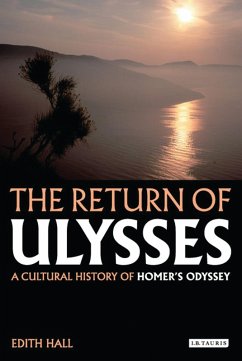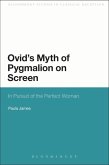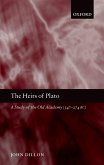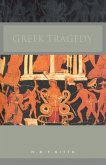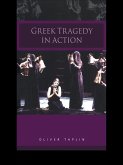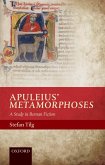Whether they focus on the bewitching song of the Sirens, his cunning escape from the cave of the terrifying one-eyed Cyclops, or the vengeful slaying of the suitors of his beautiful wife Penelope, the stirring adventures of Ulysses/Odysseus are amongst the most durable in human culture. The picaresque return of the wandering pirate-king is one of the most popular texts of all time, crossing East-West divides and inspiring poets and film-makers worldwide. But why, over three thousand years, has the Odyssey's appeal proved so remarkably resilient and long-lasting?
In her much-praised book Edith Hall explains the enduring fascination of Homer's epic in terms of its extraordinary susceptibility to adaptation. Not only has the story reflected a myriad of different agendas, but - from the tragedies of classical Athens to modern detective fiction, film, travelogue and opera - it has seemed perhaps uniquely fertile in generating new artistic forms. Cultural texts as diverse as Joyce's Ulysses, Suzanne Vega's Calypso, Monteverdi's Il Ritorno d'Ulisse in Patria, the Coen Brothers' O Brother Where Art Thou?, Daniel Vigne's Le Retour de Martin Guerre and Anthony Minghella's Cold Mountain all show that Odysseus is truly a versatile hero. His travels across the wine-dark Aegean are journeys not just into the mind of one of the most brilliantly creative of all the ancient Greek writers. They are as much a voyage beyond the boundaries of a narrative which can plausibly lay claim to being the quintessential global phenomenon.
In her much-praised book Edith Hall explains the enduring fascination of Homer's epic in terms of its extraordinary susceptibility to adaptation. Not only has the story reflected a myriad of different agendas, but - from the tragedies of classical Athens to modern detective fiction, film, travelogue and opera - it has seemed perhaps uniquely fertile in generating new artistic forms. Cultural texts as diverse as Joyce's Ulysses, Suzanne Vega's Calypso, Monteverdi's Il Ritorno d'Ulisse in Patria, the Coen Brothers' O Brother Where Art Thou?, Daniel Vigne's Le Retour de Martin Guerre and Anthony Minghella's Cold Mountain all show that Odysseus is truly a versatile hero. His travels across the wine-dark Aegean are journeys not just into the mind of one of the most brilliantly creative of all the ancient Greek writers. They are as much a voyage beyond the boundaries of a narrative which can plausibly lay claim to being the quintessential global phenomenon.

